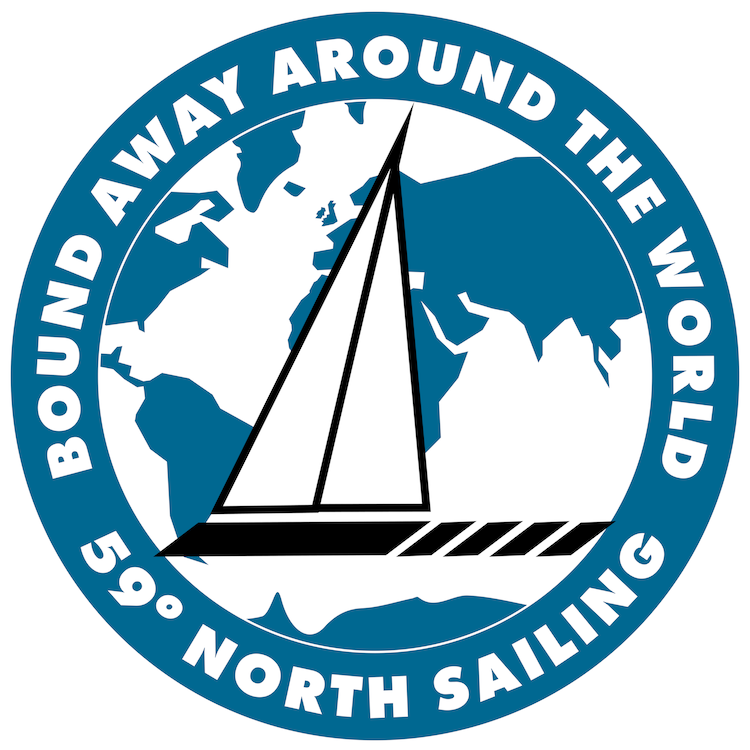As someone who is new to the offshore sailing world, I had many questions before going on my first offshore passage. What do I pack? How much time should I budget? I thought I would share some things I have learned about being a crew that will help you be more prepared, less annoying to the skipper and other crew, and hopefully get invited back.
Limit your luggage to one bag. A large duffel bag should be all you need for a 3-5 day passage, more than that is not only unnecessary but more to move to and from the boat and more stuff the other crew members have to deal with on the passage. I found that I could fit three changes of clothes, foul weather gear, towel, and toiletries in my Henri Lloyd Sea bag with no issues. Showing up to the boat is everyone’s first impression of you. Get off on a good foot by having efficiently packed luggage.
Bring a sleeping system. Have a sleeping bag that you’re comfortable in; you’ll be in an environment that is completely unfamiliar. If all else fails, at least when your off watch in your bunk having a comfortable and familiar sleeping setup will allow you to get more sleep and ultimately have a better experience. Make sure the bag is adequate for the conditions the boat will be sailing through. It also helps if the material can be easily dried — god knows at some point water will find wherever you store your gear. If the boat is small, make sure to clean up your bedding area when you go on watch. That way it is out of everyone’s way when you’re topside and everyone else is living down below.
Pack for 20 degrees colder than you think you will encounter. Even in the summer the temperature offshore is always colder than near shore. Picture how it feels to be on a ski lift: you’re frozen by the time you get to the top of the mountain. Sitting on a boat with a 15-knot breeze can feel very similar depending on the season. The key is layers. I try to pack clothes so that they can be worn as separate outfits but can all be used together if and when you need extra protection from the cold.
Dietary restrictions? Think ahead and pack what you need. Let the skipper know ahead of time if you have allergies. A reaction offshore can be deadly. If you do have specific dietary preferences bring along your own supply of food. Be sure to share with the other crewmembers. You may introduce them to some new types of food, and by offering you’ll alleviate any tension made by being “some dude eating weird food.”
Bring something small and simple to occupy your down time. One of the best things about being offshore is it limits. Not having the option to work or be distracted with the routine and stress of daily life leaves you open to read that book you’ve had for a while or write that long letter to Aunt Jemima. An e-reader is nice and compact, but beware of the charging requirements. Paper books never need charging!
Keep all your personal items in your bag. Don’t leave your shit lying around the boat! It’s already a super small space and any clutter you can avoid will gain you tons of points with the crew and skipper.
Seasickness? Bring medicine and try it beforehand. Even if you don’t get seasick normally, elements can combine offshore and even bring down the most ironclad of sailors. Bring medication with you and try it before you get on the boat. Some people can have reactions to certain types of seasickness medication. It’s always better to find out on shore if you’re one of those people.
Be open to learning and taking orders. Another fantastic thing about crewing offshore is you get to learn a new boat and a new method of doing nearly everything. Picture yourself as a sponge and absorb as much knowledge as possible. After all, you’re out here to learn.
Budget two more days than you think you will need. Even if everything does go to plan, you’ll surely need a day to get rest after arriving at your destination or after disembarking from the flight home. If delays do happen (as they often do) you will be happy you built a little extra cushion into your timeline. Finally, having more time allotted lets you be more flexible should opportunities arise, say a 30-mile ride down the coast on a borrowed bicycle or an extra day snorkeling in Tortola.
Hopefully these tips will allow you to have a successful passage, get you invited back for more sailing, or provide a solid reference for future sailing opportunities you may want to take advantage of. Have more tips for being good crew that I missed? Send me an email or comment below!
-LC


